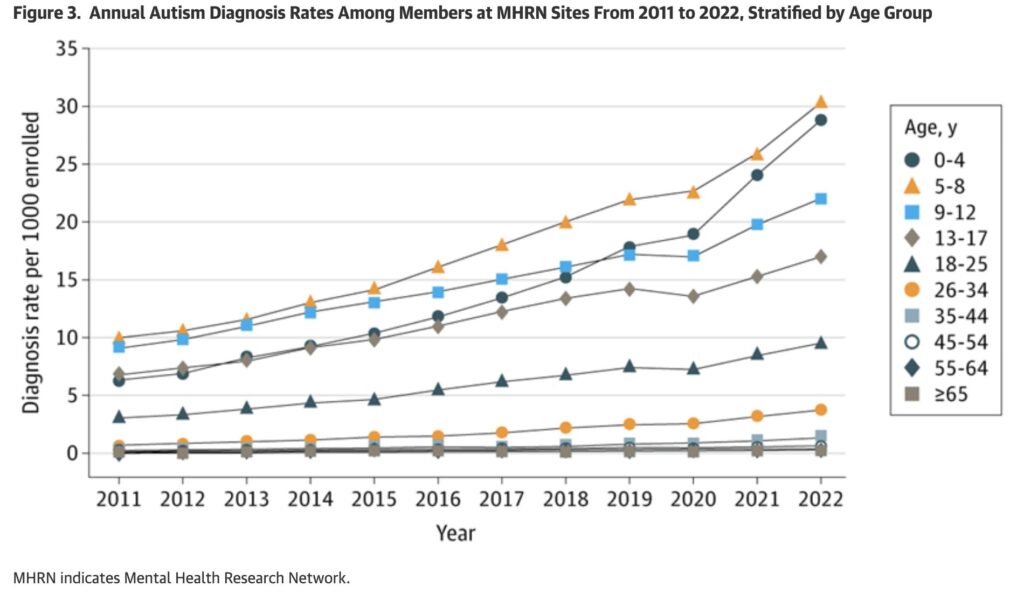 MORE INFO
MORE INFO
Due to the high volume of calls, we're experiencing a higher-than-usual backlog.
We appreciate your patience. In the meantime, please refer to our Resource Directory, Special Education Legal Library, or Insurance Portal as needed on our website while you're waiting
Washington State is home to 101,761 children, adolescents and adults on the spectrum. Of them 51,947 are 19 or younger, and 49,813 are adults 20 and older (Based on OFM Population Data)

Children, adolescents, and adults on the spectrum face constant and sometimes overwhelming barriers to accessing healthcare, education, and community services. The very interventions that would support their connections to family, school and, community are denied or disrupted time and time again. We all need consistency and supportive environments to develop independence, learn and thrive. For individuals with autism spectrum disorders these basic needs cannot be overstated. Access to trained specialists, insurance coverage for therapies, educational accommodations, and supports are both what is needed and federally guaranteed. Individuals and families have enough additional complexity in their lives as they confront the uncertainty of this lifetime condition. Imagine what would be possible without this added burden of constantly fighting for the services to which they are not only legally entitled but also urgently need.
People with ASD often have problems with social, emotional, and communication skills. They might repeat certain behaviors and might not want change in their daily activities. Many people with ASD also have different ways of learning, paying attention, or reacting to things. Signs of ASD begin during early childhood and typically last throughout a person’s life.
Children or adults with ASD might:
The M-CHAT (Modified Checklist for Autism in Toddlers) can help you determine if a professional should evaluate your child. The simple online autism screen takes only a few minutes. If the answers suggest autism, please consult with your child’s doctor. Likewise, if you have any other concerns about your child’s development, don’t wait. Speak to your doctor now about screening your child for autism.
This video from the Kennedy Krieger Institute provides an overview of how to recognize early signs of autism. Amazing Things Happen (by Amazing Things Project) is an animated video that provides a good explanation of autism to share with young people.
Many with ASDs have exceptional visual and memorization skills, excel in high-interest areas, such as music, technology, and academics. About 70 percent have average to above-average intellectual abilities. Many persons on the spectrum take deserved pride in their unique abilities and “atypical” ways of learning. Others with autism have significant disabilities and are unable to live independently. About 25 percent of individuals with ASD have very limited verbal language proficiency but can learn to communicate using augmentative communication.
Diagnosing ASD can be difficult since there is no medical test, like a blood test, to diagnose the disorders. Doctors look at the child’s behavior and development to make a diagnosis.
ASD can sometimes be detected at 18 months or younger. By age 2, a diagnosis by an experienced professional can be considered very reliable. However, many children do not receive a final diagnosis until much older. This delay means that children with ASD might not get the early help they need.
Most people with autism have psychiatric symptoms that are separate from autism itself. About 70 percent “may have” another mental disorder and 40 percent “may have two or more” such disorders (anxiety, language impairment, catatonia, eating or sleep disorders, oppositional defiant disorder, depression, self-injurious behavior, aggression, schizophrenia, psychosis, obsessive compulsive disorder, tic disorders, and bipolar disorder), according to the fifth edition of the American Psychiatric Association’s Diagnostic and Statistical Manual of Mental Disorders, or DSM-5.
If you think your child might have ASD or you think there could be a problem with the way your child plays, learns, speaks, or acts, contact your child’s doctor, and share your concerns.
If you or the doctor is still concerned, ask the doctor for a referral to a specialist who can do a more in-depth evaluation of your child. Specialists who can do a more in-depth evaluation and make a diagnosis include:
At the same time, call your nearest Neurodevelopmental Center to request a free evaluation to find out if your child qualifies for intervention services.This is sometimes called a Child Find evaluation. You do not need to wait for a doctor’s referral or a medical diagnosis to make this call.
Please visit our Services page to learn more about this.